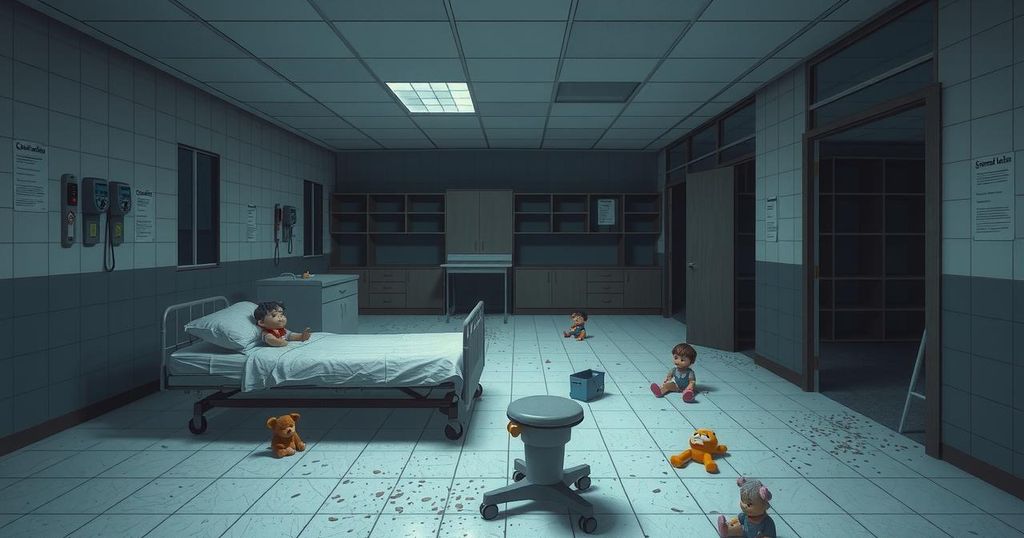Malnourished Afghan Children at High Risk Due to US Aid Cuts

Malnourished children in Afghanistan face severe risks as U.S. aid cuts lead to the closure of treatment centres. Action Against Hunger’s Kabul clinic, which lost funding, could not treat countless children. The situation has become dire, with millions affected by malnutrition and food insecurity, prompting urgent calls for aid and support.
The malnutrition treatment centre in Kabul, Afghanistan, has fallen silent as children are turned away due to cuts in U.S. aid. Formerly funded entirely by Washington, the clinic is now closed after the U.S., the largest aid donor in Afghanistan, suspended all foreign assistance. Cobi Rietveld, the country director for Action Against Hunger, emphasized that without treatment, these children face a high risk of death.
As the clinic ceased operation, stuffed animals and baby bottles were stowed away, and the pharmacy was locked when the last patient departed in March. Chief Doctor Farid Ahmad Barakzai remarked on the difficulty in informing malnourished families that they must seek treatment elsewhere, highlighting the inadequacy of available resources.
Afghanistan is currently experiencing one of the world’s most severe humanitarian crises, ranked second only to Sudan according to the United Nations. The clinic previously treated an average of 65 children with severe acute malnutrition per month, providing necessary care to prevent illness and complications. Rietveld noted that malnourished children are at significantly heightened risk of infections and premature death.
Child malnutrition presents a profound challenge in Afghanistan, affecting an entire generation. The UN reports that approximately 3.5 million children under five are acutely malnourished. Concurrently, the country grapples with food insecurity affecting 15 million Afghans, with 3.1 million people at risk of famine.
Last week, the World Food Programme indicated that U.S. funding for its operations in Afghanistan had ceased. Edwin Ceniza Salvador, a representative from the World Health Organization, highlighted the continued vulnerabilities in Afghanistan’s health system resulting from repeated shocks, stating that the most at-risk populations suffer gravely.
The funding cuts have resulted in significant layoffs within the humanitarian sector, with ACF laying off around 150 staff as a direct consequence. Rietveld conveyed the emotional toll of these layoffs, particularly on women who constituted the majority of the workforce in the child nutrition centre after facing stringent restrictions from the Taliban since their return to power in 2021.
Currently, ACF is striving to recover from the U.S. funding loss, which constituted 30 percent of its local budget, by drafting proposals and engaging with potential donors. However, Rietveld expressed skepticism about the capability of other donors to fill this financial void.
The malnutrition crisis in Afghanistan, exacerbated by the cessation of U.S. funding, poses an immediate threat to children’s lives. The closure of treatment centres has led to overwhelming challenges in addressing severe malnutrition, which affects millions. The situation highlights the urgent need for renewed funding and support for humanitarian interventions in the region, particularly for vulnerable populations, including women and children.
Original Source: www.rfi.fr








